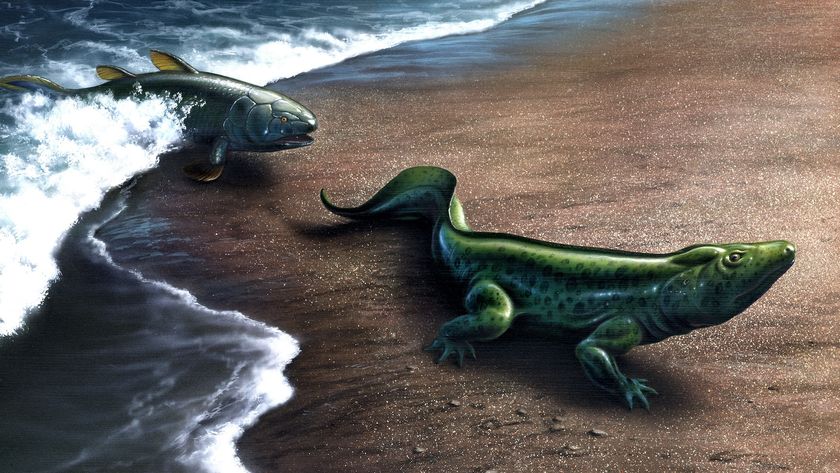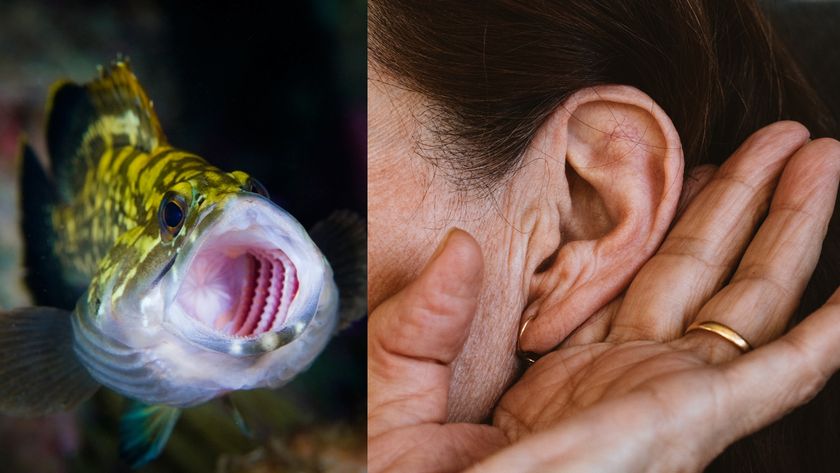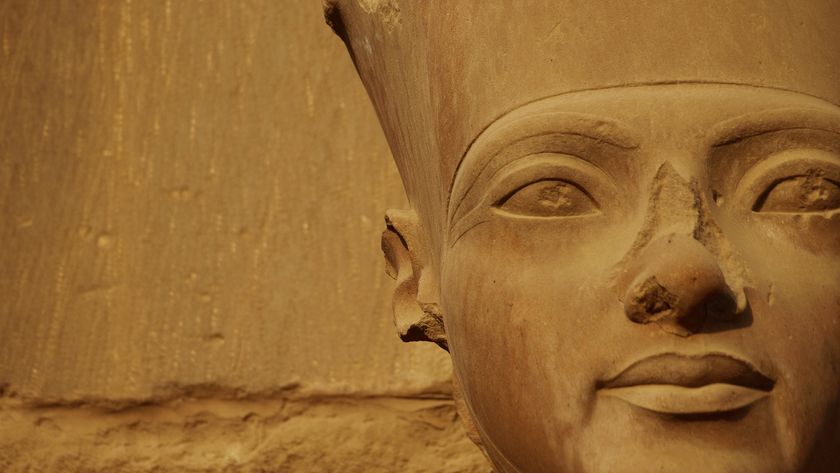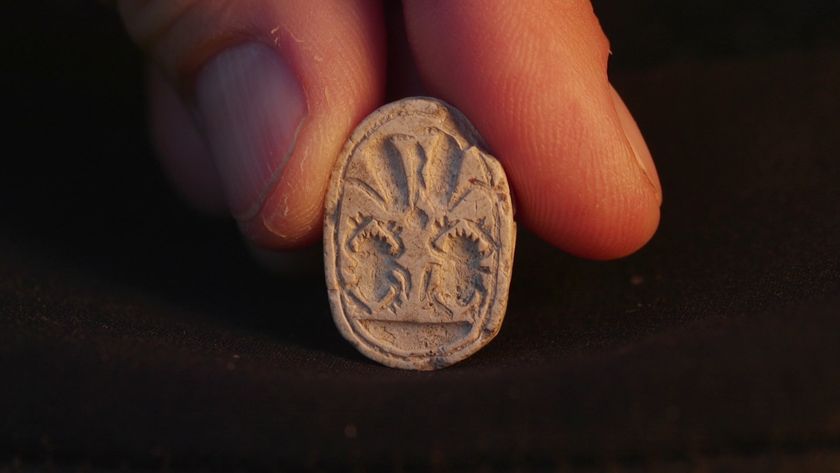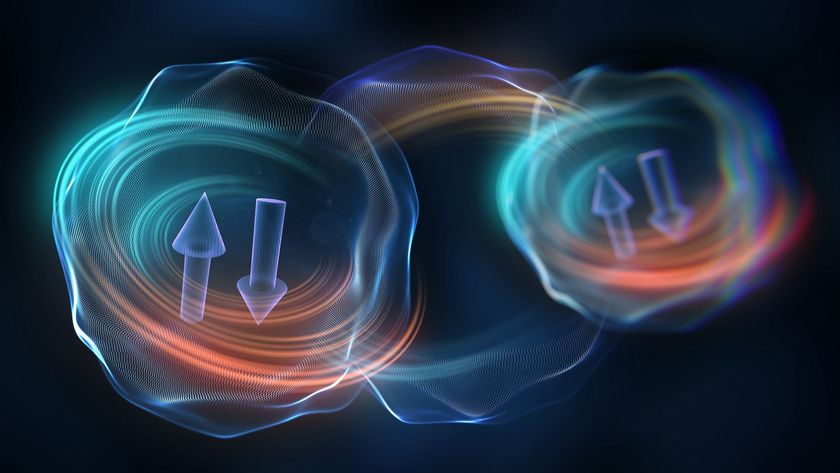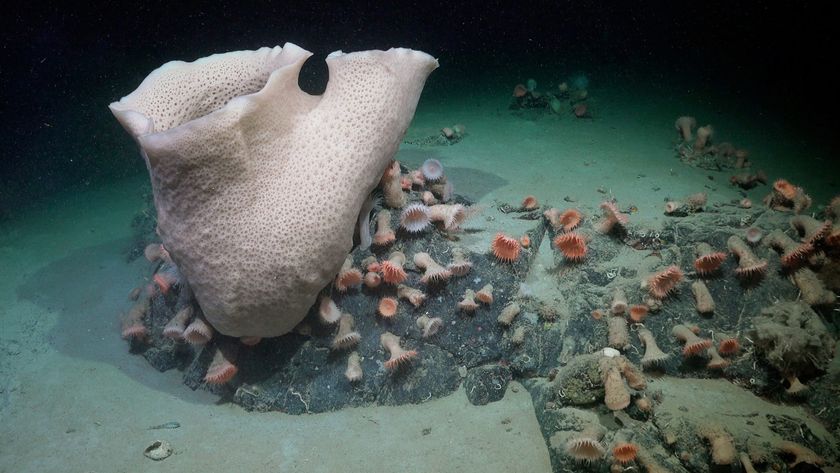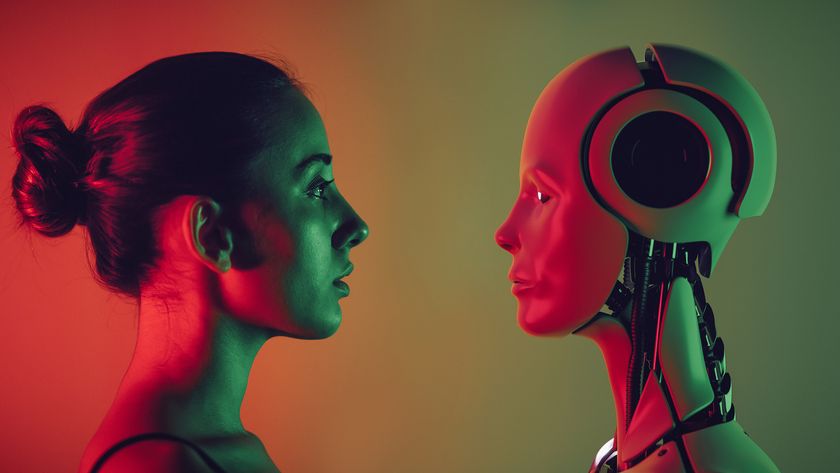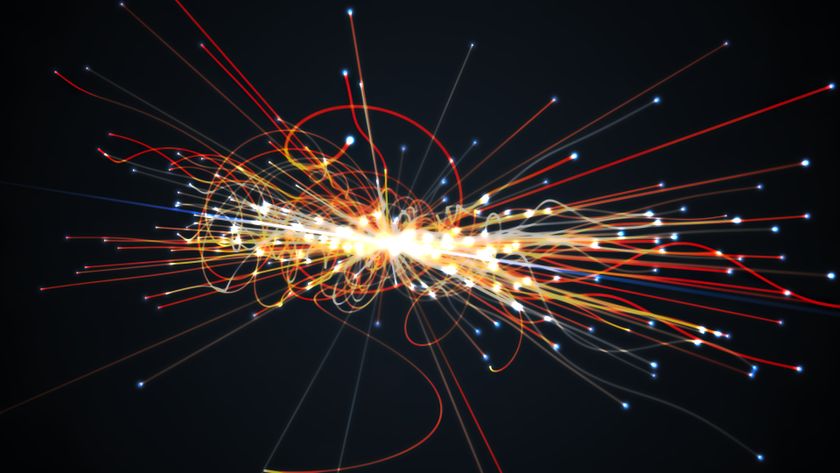Monkeys (and Humans) Prefer Mimics
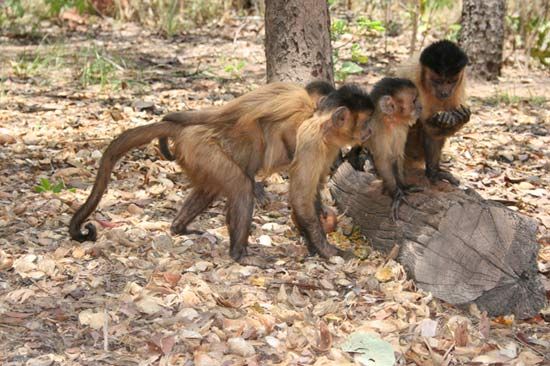
We humans often imitate the body postures or mannerisms of people we meet, usually without either person realizing it.
Previous studies have shown that this imitation promotes affection and empathy for the imitator in the people who are being imitated, suggesting this common human behavior evolved to help us get along and thrive in social groupings. In short, it might help strangers become friends.
But whether or not the same was true for other primates wasn't known. A new study, detailed in the Aug. 14 issue of the journal Science, suggests the effect works in capuchin monkeys, a very social species of New World monkey that lives in tight-knit groups.
Annika Paukner of the Eunice Kennedy Shriver National Institute of Child Health and Human Development (NICHD) and her colleagues conducted a series of experiments with the monkeys and human investigators.
The monkeys were given Wiffle Balls, which they often poked with their fingers, put in their mouths or pounded on a surface.
Each monkey was paired with a human who also had a Wiffle Ball. One human would immediately imitate the monkey's actions with their own ball, while the other would do a different action (for example, pounding the ball while the monkey poked it).
The monkeys gazed more at the imitators while playing with the ball, and chose to sit closer to them in their cages (these had three sections, one in front of the imitating investigator, one in front of the non-imitator and one neutral section in the middle).
Sign up for the Live Science daily newsletter now
Get the world’s most fascinating discoveries delivered straight to your inbox.
The monkeys also favored the imitating investigators in a simple task where they could take a small trinket from an investigator's hand, then return it for a reward (a small piece of marshmallow). Both the imitating and non-imitating investigators had the same reward, but the monkeys chose to interact more with the imitators.
The researchers interpreted this as a sign that the monkeys felt a stronger affiliation with the imitators, just as humans do.
"I believe the link between imitation and affiliation might be a very basic mechanism, and might well be shared with many other primates, perhaps even with other (non-primate) animals that live in complex social groups," Paukner told LiveScience in an email. "We would of course need to determine how common it is in the animal kingdom."
More research is needed to see if the imitation actually creates a sense of affiliation in the monkeys, said Josep Call of the Max Planck Institute for Evolutionary Anthropology in Germany. It's possible imitation signals subordination, so the monkey feels less threatened by an imitator, he wrote in an accompanying editorial in Science.
- Video – Monkey in the Mirror
- Primate News, Images and Information
- What Is It Like to Be A Monkey?

Andrea Thompson is an associate editor at Scientific American, where she covers sustainability, energy and the environment. Prior to that, she was a senior writer covering climate science at Climate Central and a reporter and editor at Live Science, where she primarily covered Earth science and the environment. She holds a graduate degree in science health and environmental reporting from New York University, as well as a bachelor of science and and masters of science in atmospheric chemistry from the Georgia Institute of Technology.
